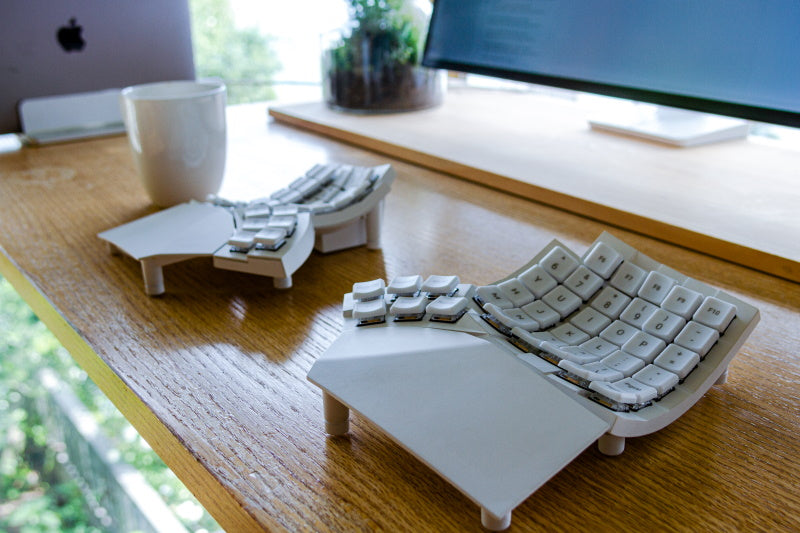I recently moved into a one bedroom apartment in Marsa Dubai (a.k.a. Dubai Marina). Being my first time renting in Dubai, it has been quite the learning experience. In this post, I share some observations and tips. I assume the following:
- You already have an Emirates ID and are in Dubai
- You're looking to rent an apartment for one year
- You want to sign a rental contract within 2-3 weeks
Narrow down target neighborhoods
Dubai has many residential neighborhoods. If you want to be efficient, you need to cast a small-ish net. Since I'm not planning to buy a car, I automatically eliminated the neighborhoods with poor metro connectivity. I was fortunate to have three acquaintances who had lived or were currently living in Dubai. With their advice, I narrowed down my list further to: Dubai Marina, JLT, and Downtown Dubai.
Reconnaissance outside of tourist season
I recommend spending a week in each neighborhood to get a feel for it. I had already lived in JLT during Ramadan earlier this year. I booked two weekly-discounted Airbnbs, one in Dubai Marina and one in Dubai Downtown. Because I was doing my reconnaissance in August, outside of tourist season, I found Airbnb prices to be very affordable - $40 to $50 per night with very nice amenities. Ramadan is also a good time for reconnaissance in terms of deals, but it may not give as accurate of a feel compared to a business-as-usual month.
Try to also sign a rental contract during the low season. Since there is less demand, you get more negotiating leverage with the landlord.
Get Whatsapp
Depending on which country you're from, it may surprise you how much in Dubai happens over Whatsapp. I signed my rental contract over Whatsapp. Connecting your UAE number to Whatsapp is essential. Unfortunately, Whatsapp does not support multiple numbers natively, so you have to download Whatsapp Business and connect your UAE number to that app instead. They share the same network.
Get Lime Pass
If you find yourself doing your research in the summer months like me, you will quickly realize Dubai is a hot place with mid-day temperatures easily hitting 40-50 degrees Celsius. Even though I found cabs to be fairly accessible and affordable, I also found myself in situations where my destination was 500m to 1km away, and the idea of paying for a cab for such a short distance bothered me. In these situations, I used Lime, an e-scooter service. They're as prevalent as cabs. I found them to be reliable although I wish they'd relax the speed limiters a bit.
A Lime Pass costs 20 AED per month and saves you the activation fee of 3.20 AED per ride. If you expect to do at least 7 Lime rides a month, Lime Pass is worth the investment. According to my ride history in August, I took 46 Lime Rides while viewing apartments, doing grocery runs, etc…
Be liquid
You're hopefully already ~75% water, but that's not what I mean. I mean be liquid in your bank account. Renting in Dubai is unique in many ways. One way is that there are a lot of upfront costs. In other cities I've rented, the only upfront costs have been a security deposit and—if applicable—a broker fee. In Dubai, there's that plus a DEWA deposit, chiller deposit, and Ejari fee. Also in other cities, the tenant pays only the first month's rent on move-in. In Dubai, the tenant pays the first 2 to 12 month's rent on move-in. There's no typo there. It is not uncommon to see a tenant pay the first six months or full year's rent upfront in Dubai. All these upfront costs mean that you should have enough cash lying around in your bank account.
Open a local bank account
Speaking of bank accounts, you need to open a local one. I was hoping to avoid this step, doing everything via Wise transfers and charging day-to-day things to my zero-foreign-transaction-fee cards. This turned out to be wishful thinking. Some merchants only accept local cards, most notably the Etisalat app. Also, there's the cheque system—another thing unique to renting in Dubai.
Cheque System
A common question you will be asked is 'how many cheques?' This means how many installments are you going to pay the year's rent in. One cheque means you will pay the full year upfront, two cheques means you will pay 6 months' rent upfront and the remainder 6 months at the halfway mark. The more you can pay upfront, the more you negotiate the rent down. But you have to hand all the physical cheques to the agency or owner upon move-in. All but the first cheque are post-dated so they can't be cashed before the appropriate date. The cheques must also be from a UAE bank.
Choosing a bank
Due to the need for a cheque book and to reduce friction with local merchants, I decided to open a local bank account. My friend recommended Emirates NBD bank. Since I was self-sponsored under the Virtual Work visa, they asked me proof of address in my home country, which I didn't wish to provide. Why complicate my life or leave a footprint if it could be avoided? After some research, I discovered a digital bank called Wio. I opened my account, got an IBAN, and ordered my debit card and chequebook all via their app. All they needed was my Emirates ID and a delivery address. I received my chequebook and debit card within 5 days of opening my account. So far it has served me well.
Use propertyfinder.ae
I used this site exclusively, even though there are others too like Bayut.com. To minimize dead end leads (i.e. apartments which have already been rented out), I recommend filtering out listings that were listed more than 30 days ago. I still had no trouble finding good options; more options than I had time to visit. I visited 7 to 8 places before I signed anything.
Visit apartments in daylight
Another peculiar aspect of renting in Dubai is that vacant apartments don't have utilities turned on during the viewing. The lights and faucets simply don't work. If there was poor natural light, I had to turn on my phone's flashlight to get a feel for the interior. Even then, I could not get a complete picture. I couldn't test water pressure, lights, nor the air conditioning. Some vacant apartments were also poorly ventilated and smelled horrible from disuse.
Later I learned the reason: utilities are tied to a DEWA account (a state run provider for water and electricity). No tenant means no active account with DEWA means no utilities in the apartment. One would expect the landlord's DEWA account to take over if an apartment is vacant, but among the places I saw, this was never the case. Maybe I was just unlucky. Or maybe it's because most landlords don't even live in Dubai and delegate everything to their property managers who want to cut corners and save money.
Luckily, I got to see two apartments which had tenants who were moving out soon. The lights worked in these apartments. The apartments felt alive. It's not surprising that I liked these two apartments the most and signed one of them. I even got a great deal on a Desky desk and bed that the previous tenant was leaving behind.
Ask for title deed, owner ID, broker license
A title deed is an official document connecting the owner to the apartment. The broker you're dealing with should have access to this document. The broker should also have access to the owner's Emirates ID or passport copy. Make sure the name on the owner's ID matches the owner's name on the title deed. Finally, the broker should be able to provide you with their license. When I liked a place, this is the first thing I asked as part of my due diligence.
Use Dubai rental index
Use this tool built by the Dubai government to get an estimate of the yearly rent the owner should be asking you. I found the tool useful to get a general idea about whether I'm overpaying. Keep in mind that the tool does not account for the number of cheques and it also assumes the place is unfurnished.
The building matters, too
I was pretty enthusiastic about signing for an 1BHK in one of the buildings in the Marina. I had just met the owner in the apartment, we discussed the finer points along with his property manager, and I felt good overall. When the meeting was over, the owner and property manager stayed back, and I took the elevator down on my own. A British gentleman entered and I casually asked him if he's a resident and how his experience has been with the building. He told me the swimming pool has not been operational for months and residents haven't been remunerated for the inconvenience. Moreover, the adjacent building suffered a massive fire recently, and there's a ton of noise and dust from the surrounding reconstruction. In short, he advised me to stay away. After corroborating his account with the property manager, I did. Thanks to that random encounter, I think I dodged a bullet. Moral of the story: it's not just the apartment. The building matters too. Get a tour of the pool, gym, and other amenities. Try to gather data points from existing residents via casual chit chat in lobbies and elevators. Remember, the property manager is trying to close a deal. He won't volunteer negative information. It's your job to ask.
Two week maintenance grace period
The baseline rental contract in Dubai is pretty standardized. An addendum can be added with additional, custom terms. The baseline contract dictates that if some maintenance work is required, the tenant will pay the first 500 AED and the owner will pay the rest. My friend advised me to add a clause in the addendum stating that any maintenance work required within the first two weeks from the move-in date is the owner's full responsibility. Imagine moving into your apartment and discovering the water heater doesn't work. The tenant shouldn't be liable for that. This is what happened to my friend. Sadly, he had to learn his lesson the hard way. I asked my broker to add this clause, and I didn't get any pushback on it.
Contract sanity checks
Once the rental contract is signed by the tenant and the owner, it needs to be registered with the Dubai land department. This is called Ejari. This ended up being harder than I expected. The first time I went, the official told me the owner's signature on the contract does not match the signature on their passport. He was right. I notified my broker, who notified the owner, who took three long days to sign it again. The second time I went, the official said the DEWA number on the contract doesn't match my apartment number. Basically, every apartment has unique DEWA number for utilities, and mine didn't line up. Luckily, I could get a hold of my broker on the phone and fix this on the spot. Both these errors could've been caught much earlier or avoided altogether with a more competent broker. I recommend double checking these things yourself before doing Ejari. Or better yet, have your broker do the Ejari for you.
That sums it up. Hope it helps you in your rental quest in Dubai.
.png)




